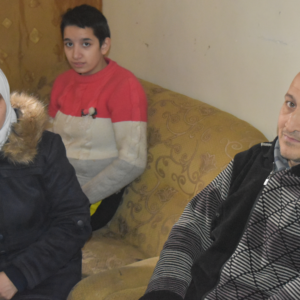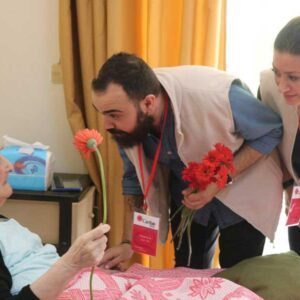Yasmine Halalish lives in Aleppo with her husband, Fathi Moustafa, as the stepmother of three children: Raneem, who needs special health care, Tasneem and Mouhammad Moustafa. Their birth mother died. Please tell me about the time after the earthquake. Did you receive any aid? «We did receive aid from Caritas Syria: canned food, hygiene kits ...
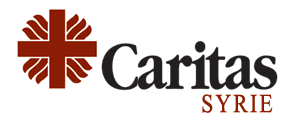
Address: Commission Commune de Bienfaisance, Rue Murched Khater, Imm. Mar Mansour, PO Box 22249 Damascus, Syria
Telephone: +963 11 443 6366 Fax: +963 11 443 6369
Email: [email protected]
Facebook: Caritas.Syria Twitter: CaritasSyria
www.caritas-sy.com
The Council of the heads of the Catholic Churches in Syria founded Caritas Syria in 1954.
At the beginning, Caritas work was very modest due to the fact that poverty rates were low in Syria and there was no big need for humanitarian aid. During the Iraqi war in 2003, Caritas provided assistance to Iraqi refugees, particularly in Aleppo and Hassakeh regions.
With the beginning of the war in Syria in March 2011, and to be able to face the growing needs among the Syrian society, Caritas began to expand to be able to reach the largest possible number of beneficiaries without discrimination between sect, doctrine or religion. The number of its offices, centres and staff (employees and volunteers) increased to cover six regions: Damascus, Aleppo, Homs, the Coastal Area, Hassakeh and Horan.
Through its various projects, Caritas Syria has offered different kinds of aid: food and basic items, education, elderlies support, psycho-social support for children and housing assistance, as the war has deprived most Syrians of any source of income.
Syria’s humanitarian crisis has produced over 6.5 million refugees in neighbouring countries. The number of victims of this fratricidal war has reached more than 400 000, but the figures do not reflect the real cost of the war. Nearly 12 million Syrians are in need, and more than 6 million people have fled the conflict and still are internally displaced.
Caritas Syria works in partnership with existing religious communities as it also cooperates with Shiite and Sunnite humanitarian organizations, in order to reach the maximum number of people in need. Within the Caritas network, Caritas Syria collaborates with: Caritas Germany, Caritas Austria, Caritas Belgium, Caritas England and Wales (CAFOD), Catholic Organisation for Relief and Development Aid (CORDAID), Trócaire, Catholic Relief Services (CRS), Caritas Spain, Caritas Italiana, Secours Catholique (Caritas France), Caritas Switzerland, Caritas Poland, Caritas Japan, Caritas Korea, Development and Peace (Caritas Canada), the Scottish Catholic International Aid Fund (SCIAF) and Caritas Internationalis. Caritas Syria’s partners outside the Caritas network include: AED, Barnabas Fund, Solidarietà Internazionale Trinitaria, Stockholm Diocese and Oecumene Netherlands.
Updates from Syria
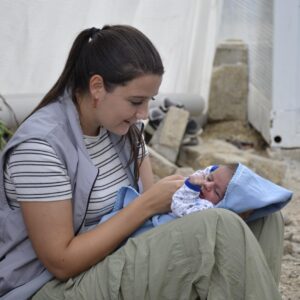
We could finally afford to live in the house of our dreams. It was outside the centre of Homs, the family home, big and spacious. After years of hard work as a teacher, my husband had saved enough money to renovate it. I was happy, finally our children would have enough space to grow up happy. ...
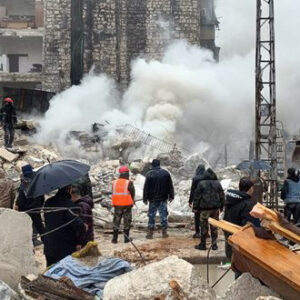
Six months after the tragic earthquake that struck Turkey and Syria on the night of February 5-6, the people are still in dire need. Caritas Confederation continues to assist the two local Caritas in the response. In Turkey, the earthquake toll was more than 50,000 casualties, 3 million people displaced and 9 million affected, and despite ...
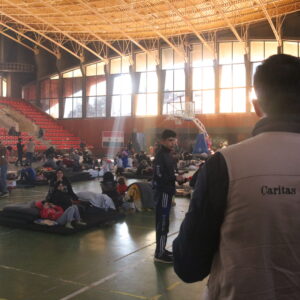
According to UNHCR, widespread destruction of buildings and homes has displaced 150,000 households across Syria and 900,000 people are in urgent need of shelter. To date, an estimated 50,000 people are dead and an additional 110,000 have been left injured by the earthquake on February 6th. These figures continue to rise as search and rescue ...
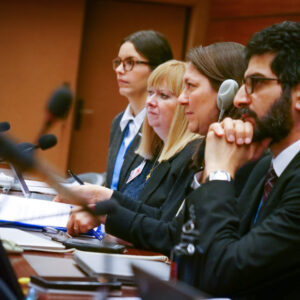
In conjunction with the 52nd Session of the United Nations Human Rights Council (27- February – 4 April), Caritas Internationalis (CI) together with the World Evangelical Alliance (WEA), World Council of Churches (WCC) and ACT Alliance have launched their joint report ‘Assessing the Impact of Sanctions on Humanitarian Work’ in partnership with the Geneva Graduate ...
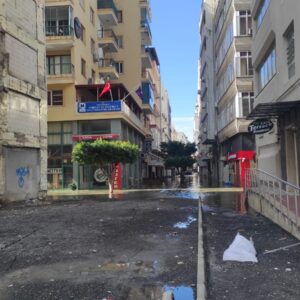
EARTHQUAKE IN SYRIA AND TURKEY: WE TRY TO HELP PEOPLE AND TO BE TOGETHER IN THE FACE OF THIS TRAGEDY
One month has now passed since two powerful earthquakes struck Turkey and north-west Syria on 6 February. Since then, Caritas’ emergency response efforts on the ground have been led by local organisations in Anatolia in Turkey, and in the Syrian cities of Aleppo and Lattakia. In Turkey alone, it is estimated that 44,200 people have ...
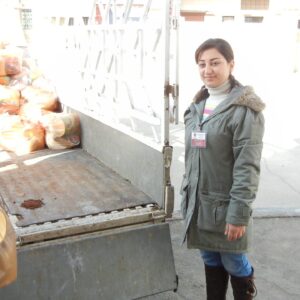
After 11 years of civil war in Syria, the impact of prolonged violence and conflict has left deep wounds and scars in the country. Severe economic deterioration and its knock-on effects, as well as the impact of the COVID-19 pandemic, has left over 90 per cent of the population living under the poverty line and ...
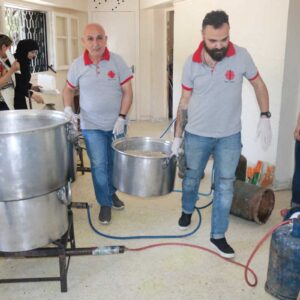
Ahead of the fifth European Union donor conference on Syria, Caritas Internationalis shed light on the situation in Syria and urges the international community to act during the conference “Church and Caritas: 10 years of humanitarian response in Syria”.
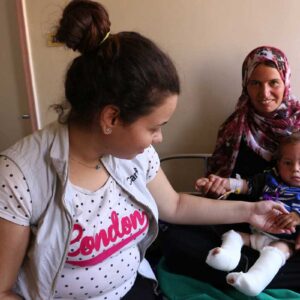
The closeness of Caritas with the vulnerable people of Syria has grown stronger and stronger during ten years of war. We look back at just some of the moments of Caritas’s work during ten years of war in Syria.

